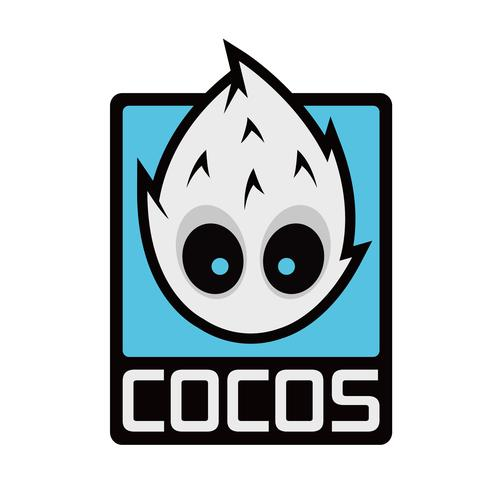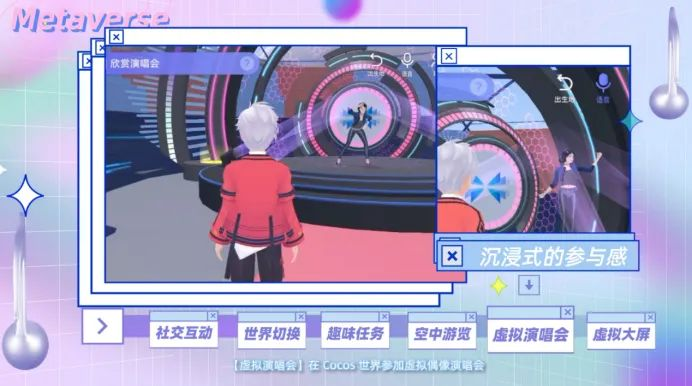China’s Domestic Game Engine Developer Cocos

In the past decade, “whirlwinds” of new development have swept across the technology industry, but if one must say what the greatest “whirlwind” in the past two years is, the answer must be the metaverse. At the same time, even the once-silent XR has attracted a lot of capital and entrepreneurs in the past year.
Since last year, it’s not only the large companies like Facebook, Microsoft and Tencent, but also small and medium-sized entrepreneurs who have their eyes on the metaverse, which is seen as the core of the next generation of the Internet. The metaverse needs strong content to support and mature technology to realize. Hence the technological base, the 3D engine, has become the focus of all attention.
Unreal, Unity and Cocos are currently the three major commercial and most widely-used interactive content development tools worldwide. Among them, Cocos, founded in 2010, is the only domestic manufacturer and the only local commercial game engine with independent intellectual property rights and open source.
With many developers entering the intelligent cockpit, XR, virtual humans and other fields, Cocos’s application scenarios are also constantly expanding to the metaverse, and commercialization is significantly accelerated. According to the introduction, Cocos currently has two current profit models, one is to pay by service, one is the licensing fee of tools and PaaS service consumption fee.
Recently, Unity announced two major announcements to acquire AppLovin’s rival IronSource to improve its advertising distribution capabilities, and to redo business in China as a joint venture with Alibaba, TikTok, Mihoyo, G-bits, China Mobile and more. Cocos was not idle, either. In the past two years, on one hand it has accelerated the updates and iterations of 3D capability. On the other hand, it has continuously expanded the application scenarios, accelerated the commercialization, and improved its differentiated competitiveness.
In January 2021, Cocos, which has been previously regarded as a 2D game engine, released Creator 3.0, achieving the fusion of 2D and 3D. In the following year and a half, after six iterations: version 3.1 achieved delayed rendering technology breakthrough, 3.2 became the world’s first cross-platform graphics rendering engine to support HarmoneyOS, 3.3 released the cyberpunk-style technology project with graphics on par with 3A games… Cocos released the most important milestone version after 3.0, Creator 3.6.
Cocos grew rapidly because it “just happened” to solve the pain points of the industry, “without the good, usable cross-platform engine, which was one of the reasons.” Another reason is that mobile phone releases, especially Android phones, rose exponentially in 2010 through 2012, while mobile operating systems are very split, with high performance and high compatibility being particularly important. Cocos solved the problem that a game couldn’t run on all kinds of weird Android hardware, meeting the industry needs of that era, and hence bring about the golden age of mobile games. Eco-driven products gave Cocos an innate tendency to extend to various scenarios. The Cocos engine was actually used outside of games early-on, including the early days where the developer would use it to develop apps for set-top boxes, smart TVS, and entertainment screens.

In July this year, Cocos and Baidu launched a one-stop metaverse content development solution based on the Cocos engine Lite, providing a “stepping stone” for many developers to enter the metauniverse; for example, Cocos and Agora cooperated to build SDK, and Cocos will release the virtual idol editor in the Q4 quarter, participating in “metauniverse + social”.
With solid basic development tools, even the tools themselves can steadily improve and march forward in this age where people make money out of dividends.

熱門頭條新聞
- The Ministry of Education encourages the inclusion of artificial intelligence education in local and school-based curricula.
- The OpenHarmony 5.0 Release version has been officially released.
- China’s Minidramas Make Big Splash
- DevGAMM Lisbon 2024 celebrates another successful edition with more than 750 attendees from around the world
- Wait What’s That – A VRy Unique Take On A Classic Drawing Game – Out Now For Free On Meta Quest!
- Slow-Motion Collapse: How Nostalgia, Streaming, and Short-Sightedness Undermined Hollywood’s Future
- PBS NOVA / GBH JOINS THE PRODUCTION OF ZED AND ARTE’S PREMIUM DOCUMENTARY THE LOST TOMBS OF NOTRE-DAME
- Biopunk Action Title Sonokuni Launching Early 2025
